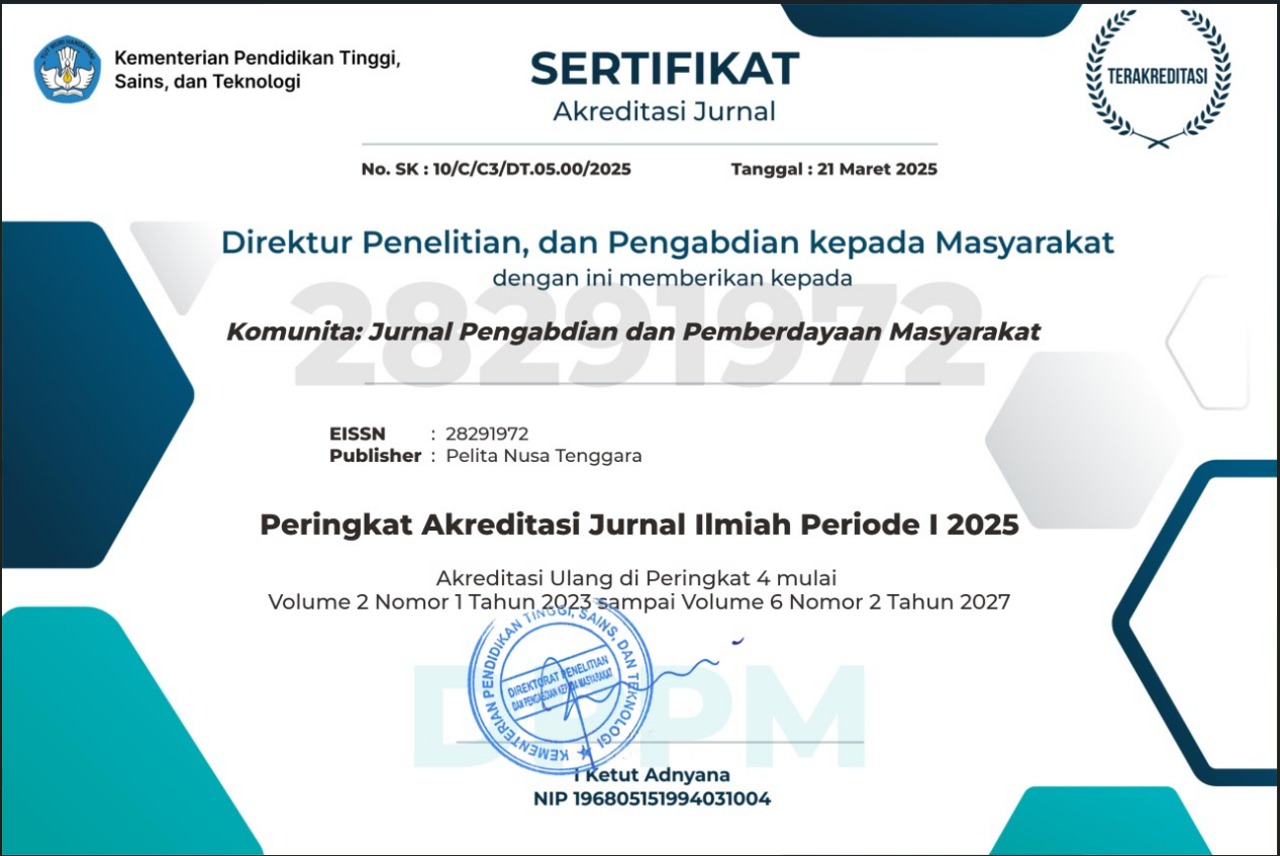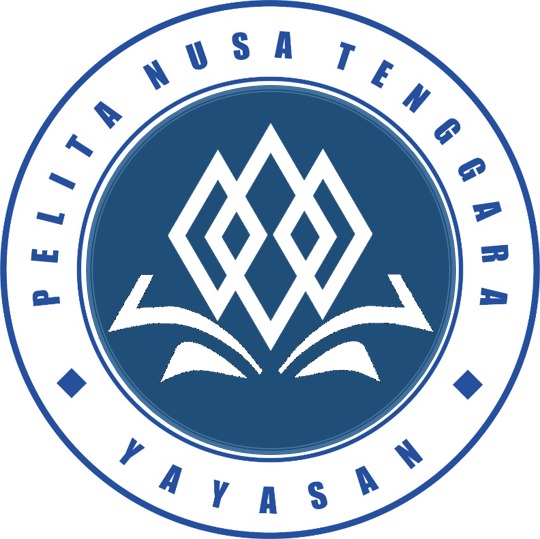Sosialisasi Proses Implementasi Deep Learning dalam Pembelajaran Bahasa: Mewujudkan Pengalaman belajar yang Bermakna, Reflektif, dan Menyenangkan
Abstract
21st-century learning demands mastery of critical thinking, creativity, communication, and collaboration skills. However, these skills are difficult to develop if the learning approach still focuses on lectures and memorization. Deep learning, which emphasizes meaningful understanding, reflection, and application in real life, is one potential strategy for bridging this gap. Unfortunately, most previous research has only examined deep learning in digital contexts, although many schools in Indonesia still have limited access to technology. The service aims to socialize the process of implementing deep learning that can be applied in classroom environments with limited access to technology, especially to describe student interactions that represent their skills in understanding, applying, and reflecting. With a socialization approach using two stages of activities, namely the process of implementing activities and evaluation, activities were carried out for grade 11 students at SMA Swadaya Karya Ciwidey, Bandung Regency. The results show that the application of deep learning-based learning encourages students to understand concepts more critically (such as distinguishing between laziness and procrastination), relate the material to authentic experiences, and develop reflective problem-solving strategies. College students also show improvements in engagement, self-awareness, and high-level thinking skills, even without the support of digital technology. This study underscores the importance of learning designs that focus on immersive learning experiences that are relevant to students' lives, even in the context of limited resources.
References
Anderson, L. W., & Krathwohl, D. R. (2001). A taxonomy for learning, teaching, and assessing: A revision of Bloom’s taxonomy of educational objectives. Addison Wesley Longman.
Anderson, L. W., & Krathwohl, D. R. (2001). A taxonomy for learning, teaching, and assessing: A revision of Bloom’s taxonomy of educational objectives. Longman" in your library. Longman.
Biggs, J., & Tang, C. (2003). Teaching for Quality Learning at University, Fourth Edition. The Society for Research into Higher Education. www.openup.co.uk
Bloom, B. S., Engelhart, M. D., Furst, E. J., Hill, W. H., & Krathwohl, D. R. (1956). The Classification of Educational Goals. In B. S. Bloom (Ed.), Taxonomy of educational objectives. Longman. https://www.uky.edu/~rsand1/china2018/texts/Bloom et al -Taxonomy of Educational Objectives.pdf
Boud, D.; Keogh, R.; Walker, D. (1985). Reflection: turning experience into learning. London: Kogan Page. Kogan Page.
Cutting, J. E., & Rosner, B. S. (1974). Categories and boundaries in speech and music*. Perception & Psychophysics, 16(3), 564–570Acesta, Arrofa. 2023. “Penyuluhan Perkembangan Dan Tantangan Peserta Didik Usia Pendidikan Dasar Pada Abad 21.” Abdimas Siliwangi 6 (3): 771–79. https://doi.org/10.22460/as.v6i3.21233.
Maryumi, Wally Acani, Hastati, Wa Harni, Suriyati, Nursia Rumbia, Wa Warti Ode, et al. 2022. “Sosialisasi Pentingnya Peran Orang Tua Dalam Pemenuhan Gizi Pada Anak Usia Dini Di TK Terpadu Rejo Sari.” Jurnal Kewarganegaraan 6 (2): 3622–27.
. https://doi.org/10.3758/BF03198588
Davidoff, F. (2019). Understanding contexts: how explanatory theories can help. Implementation Science, 14(1), 23. https://doi.org/10.1186/s13012-019-0872-8
Hoyle, E. (2009). Changing conceptions of teaching as a profession: Personal reflections. In Teaching: Professionalization, Development and Leadership: Festschrift for Professor Eric Hoyle (pp. 285–304). https://doi.org/10.1007/978-1-4020-8186-6_19
Kuncahya, aulia D. (2021). Pemahaman Konseptual Dan Prosedural Siswa Dalam Pemecahan Masalah Matematika Materi Sistem Persamaan Linier Dua Variabel Ditinjau dari Gaya Belajar Siswa .
Lin, L., Chen, R., & Huang, C. (2024). Research on Deep Learning Technology to Enhance the Efficiency of Teaching Interaction in College English Classrooms. Applied Mathematics and Nonlinear Sciences, 9(1). https://doi.org/10.2478/amns-2024-2515
Putri, H. D. (2025). Mengenal Deep Learning: Metode Pembelajaran yang Bikin Mengajar Makin Gampang. Badan Litbang Dan Diklat; Kementerian Agama RI.
Salomon, G. (1999). Transfer Of Learning. https://www.researchgate.net/publication/2402396
Sargeant, J., Mann, K., Van Der Vleuten, C., & Metsemakers, J. (2008). Directed self-assessment: Practice and feedback within a social context. Journal of Continuing Education in the Health Professions, 28(1), 47–54. https://doi.org/10.1002/chp.155
Schon, D. A. (1983). The reflective Practitioner: How Professionals Think in Action. Basic Books Inc.
Sollied Madsen, S., Thorvaldsen, S., & Sollied, S. (2021). Are Teacher Students’ Deep Learning and Critical Thinking at Risk of Being Limited in Digital Learning Environments? In S. T. and S. S. Siri Sollied Madsen (Ed.), Teacher Education in the 21st Century - Emerging Skills for a Changing World. IntechOpen. https://doi.org/10.5772/intechopen.96151
Thornhill-Miller, B., Camarda, A., Mercier, M., Burkhardt, J. M., Morisseau, T., Bourgeois-Bougrine, S., Vinchon, F., El Hayek, S., Augereau-Landais, M., Mourey, F., Feybesse, C., Sundquist, D., & Lubart, T. (2023). Creativity, Critical Thinking, Communication, and Collaboration: Assessment, Certification, and Promotion of 21st Century Skills for the Future of Work and Education. Journal of Intelligence, 11(3). https://doi.org/10.3390/jintelligence11030054








